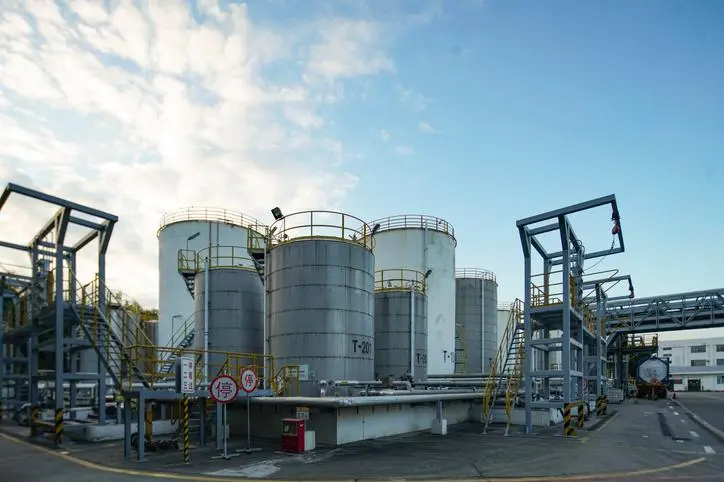PHOTO
LONDON- Oil prices fell by 2 percent on Thursday after U.S. crude production neared an unprecedented 12 million barrels per day (bpd) and concern grew over weakening demand, particularly in light of the trade dispute between the United States and China.
Brent crude oil futures were down $1.08 at $60.24 a barrel by 1310 GMT, while U.S. crude futures fell by the same amount to $51.23.
The price of oil remains about 20 percent up on the 18-month low registered in late December, but investors appear loath to push crude much higher without evidence that relations between Washington and Beijing are improving, analysts said.
"Brent needs to move past $62 before we can talk about $65," BNP Paribas head of commodities Harry Tchilingurian told the Reuters Global Oil Forum.
"From there, the door will be open to target $70, (if) we do not have negative news emerging around U.S.-China trade talks that caused high levels of angst and de-risking last December."
Soaring U.S. crude output, which neared a record 12 million bpd in early January, is fuelling some of the concern among traders and investors that growth in global supply this year will outpace demand.
In response to the drop in price in the second half of last year, the Organization of the Petroleum Exporting Countries and non-members such as Russia and Oman will cut production by a joint 1.2 million bpd this year.
U.S. output has climbed by 2.4 million bpd since January 2018 and stockpiles of crude and refined products have risen sharply, U.S. Energy Information Administration data shows.
"While (U.S. crude) inventories fell slightly more than expected (last week), there was a large build in gasoline inventories. This stoked fears of weak demand in the U.S.," ANZ Bank said in a note.
Norbert Ruecker, head of commodity research at Swiss bank Julius Baer, said "the United States is moving forward towards energy independence and is set to become a petroleum net exporter next year thanks to rising shale output".
OPEC, in its monthly market report, warned that the economic risks in 2019 remained skewed to the downside and cut its forecast for the average demand for its crude to 30.83 million bpd this year, down 910,000 bpd on the 2018 average.
(Additional reporting by Henning Gloystein in SINGAPORE and Colin Packham in SYDNEY; Editing by Dale Hudson and David Goodman) ((colin.packham@thomsonreuters.com; +61-2 9321 8161; Reuters Messaging: colin.packham.thomsonreuters.com@reuters.net))





















